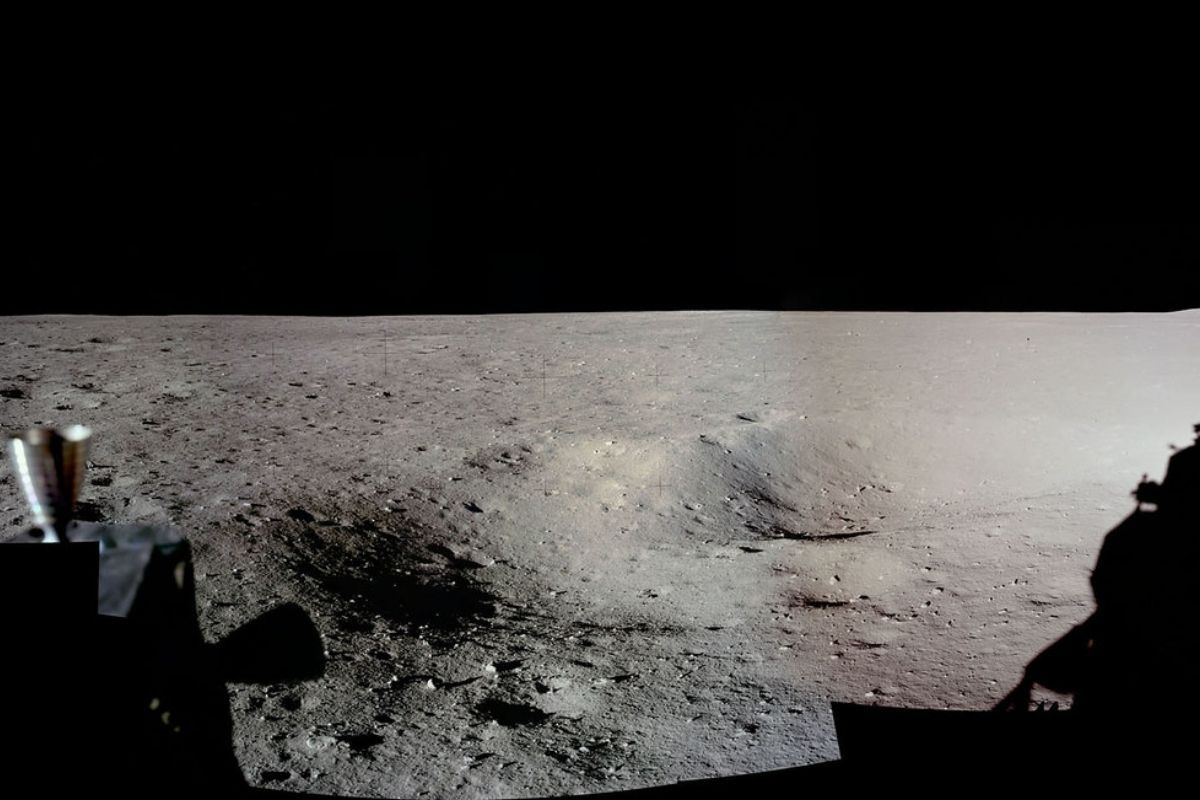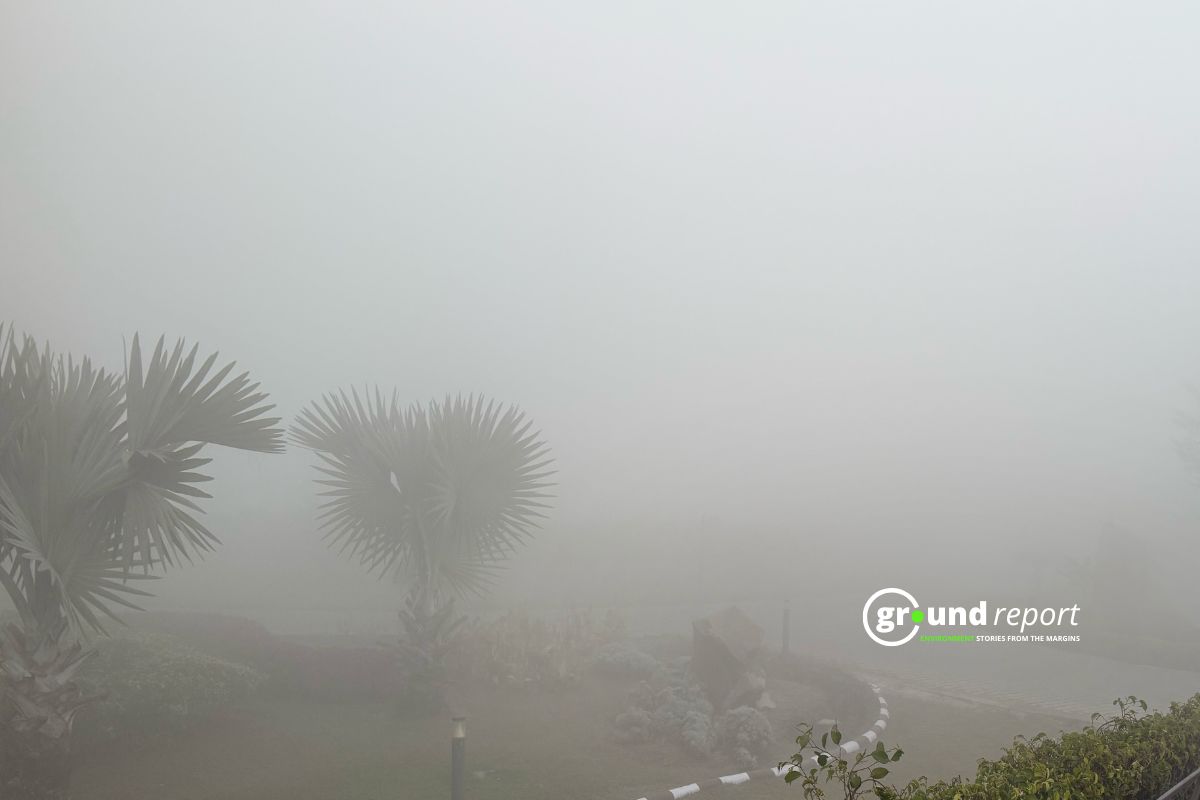A recent study by Indian scientists has revealed a surprising connection between the global COVID-19 lockdowns in 2020 and an unexpected temperature drop on the Moon. The study, published in the Monthly Notices of the Royal Astronomical Society: Letters, has sparked interest in how human activity on Earth might affect our closest celestial neighbour.
Lockdown cooled Moon’s temperature significantly
A study by K Durga Prasad and G Ambily from India’s Physical Research Laboratory (PRL) found the Moon’s surface temperatures dropped by an unusual 8-10 Kelvin during the strictest lockdown periods. The team analyzed lunar surface temperatures from NASA’s Lunar Reconnaissance Orbiter (LRO) data and noticed this anomaly at six locations on the Moon’s nearside.
The 2020 global lockdowns significantly decreased industrial activities, vehicular movement, and human activities, cutting greenhouse gas emissions and aerosol pollution, and altering Earth’s radiation emissions. Researchers say these changes directly impacted the Moon’s surface temperatures.
The lunar temperature drop is a rare observation suggesting a broader impact of Earth’s atmospheric changes on the Moon. PRL Director Anil Bharadwaj expressed the uniqueness of this study, calling it an important contribution to understanding the Earth-Moon relationship. “The Moon amplifies Earth’s radiation signature. This rare event let us observe how changes in human activity on Earth can affect our nearest celestial neighbor,” said Bharadwaj.
The research team examined night-time surface temperatures across six Moon locations: two regions of Oceanus Procellarum, Mare Serenitatis, Mare Imbrium, Mare Tranquillitatis, and Mare Crisium. Analyzing data from 2017 to 2023, including three years before and after 2020 for comparison, the scientists identified a significant temperature dip during the lockdown months.
The drop recorded between April and May 2020 coincided with low human activity on Earth. “We analyzed 12 years of data, but focused on the seven-year span from 2017 to 2023,” explained lead researcher K Durga Prasad. The analysis showed the Moon’s temperature fell by -250 degrees during the lockdown compared to the same months in other years.
Lockdown reduced Earth’s radiation, cooling Moon
The researchers linked Moon cooling to reduced Earth’s radiation during the lockdown. As industrial activities, transportation, and human endeavors halted, aerosols and greenhouse gas emissions decreased.
“During the lockdown, Earth’s radiation changed due to reduced human activity, altering the lunar surface temperature,” said Prasad. The Moon, which normally reflects and absorbs Earth’s radiation, experienced this temperature dip due to decreased heat from Earth.
The researchers also looked into potential causes like solar activity and seasonal variations to make sure that other factors weren’t to blame for this temperature drop. Their findings indicated these elements did not influence the anomaly, reinforcing their conclusion that the lunar temperature drop was linked to the global reduction in human activity during the pandemic lockdown.
The researchers acknowledged that while the correlation between the lockdown and the temperature drop is strong, further studies and more data are necessary to understand the Earth-Moon dynamic. Future lunar observatories could monitor and study the effects of Earth’s climate changes on the Moon.
More research needed on Earth-Moon effects
“An anomalous decrease in lunar night-time surface temperatures during the Covid lockdown period is observed, and the effects of other factors like solar activity and seasonal flux variation have been investigated. Results show none of these factors influence the observed signature, supporting our findings to be due to Covid lockdown,” the paper reads.
The study highlights the unexpected consequences of human activity on Earth, demonstrating its impact on celestial bodies like the Moon. While it’s known that human activity alters the Earth’s climate, this research opens new avenues to explore how such changes ripple through space.
The research team’s findings have generated interest in how future human-induced environmental shifts could impact the broader solar system. “We need to understand Earth’s influence on its surrounding environment, including the Moon,” noted Bharadwaj.
As more sophisticated instruments are developed to study Earth and the Moon, scientists expect to uncover more about the connections between human activity and the cosmic environment.
Support us to keep independent environmental journalism alive in India.
Keep Reading
Part 1: Cloudburst in Ganderbal’s Padabal village & unfulfilled promises
India braces for intense 2024 monsoon amid recent deadly weather trends
Follow Ground Report on X, Instagram and Facebook for environmental and underreported stories from the margins. Give us feedback on our email id greport2018@gmail.com.
Don’t forget to Subscribe to our weekly newsletter, Join our community on WhatsApp, and Follow our YouTube Channel for video stories.






